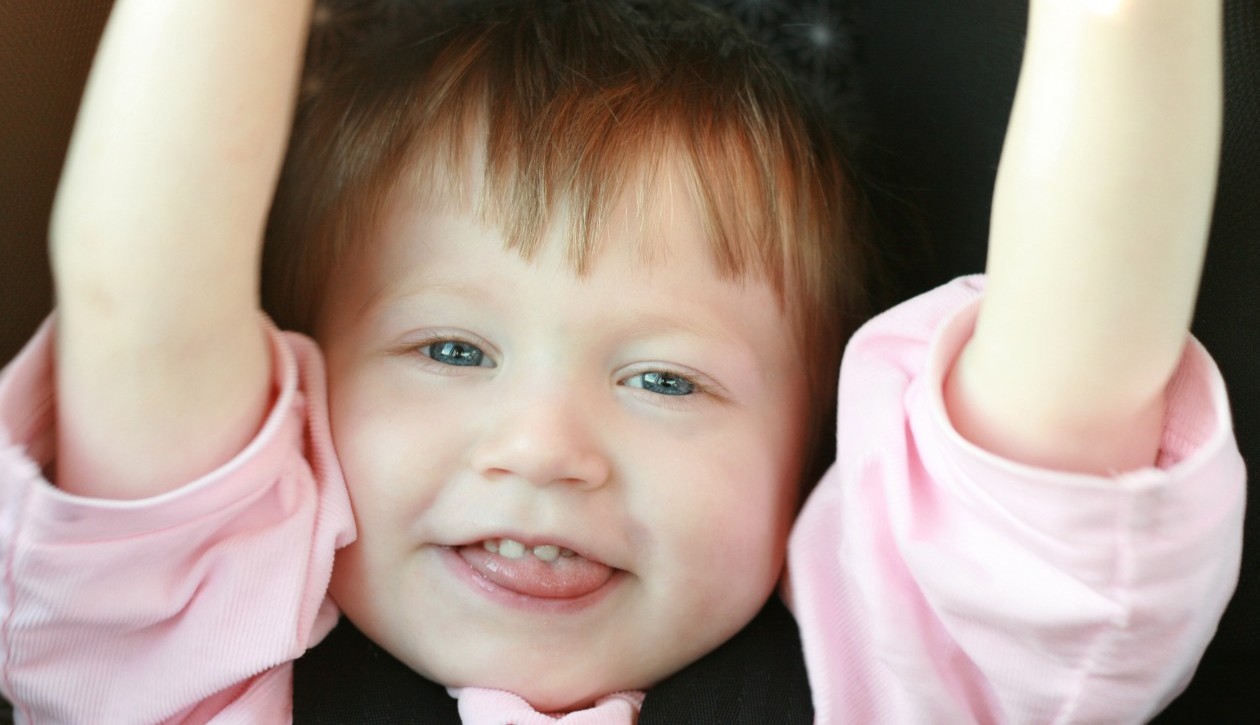December 2014 was one of the hardest months. Katherine had been given her second 90-95% diagnosis of Infantile Neuroaxonal Dystrophy (INAD) from another top neurologist. She showed signs of regression that are typical for INAD patients – loss of skills (she no longer was able to climb and asked for help getting up on the bed), seizure-like activity, and she started saying she couldn’t see very well in low light. We found ourselves in the hospital for four long days of testing as others were putting up their Christmas trees and baking cookies.
 The only things standing between what appeared to be the inevitable and hope were a miracle and a whole exome sequencing test. We wouldn’t get results back until February.
The only things standing between what appeared to be the inevitable and hope were a miracle and a whole exome sequencing test. We wouldn’t get results back until February.
A few months earlier I ran into a dear friend’s mother whom had recently lost her husband to lung cancer. Full of grace and eloquence, she passed along some wisdom as our tear-filled conversation concluded:
As my own mother battled cancer, she taught us that how we leave this life is as important as how we live it, and that we should try our best not to grieve the dying until they are gone. This is very hard to do, though, I know.
Christmas is especially tough for the caregivers of those with a terminal illness. Amidst the magic of a season rich in faith, family, and tradition, your own pain is amplified against the backdrop of a world that is enveloped in a warm, merry bubble of happiness and joy. For me, this time of year hurt a little deeper, especially with Katherine’s recent regression.
As I walked down the aisles of the grocery, slowly and methodically gathering ingredients for Christmas dinner, overhead Bing Crosby was singing “I’ll Be Home for Christmas,” told from the point of view of an overseas soldier during WWII, writing a letter to his family:
I’ll be home for Christmas
You can plan on me
Please have snow and mistletoe
And presents on the tree.Christmas Eve will find me
Where the love light gleams
I’ll be home for Christmas
If only in my dreams.
I looked around at the smiling faces as these words blared in my head and realized I was shopping for what I believed was my child’s last Christmas dinner; there would be no more snow and mistletoe, or presents under the tree. The ghost of Christmas future was whispering my worst nightmare in my ear: I would be a childless mother for the rest of my life.
Right then and there, in the middle of a grocery store aisle filled with singing reindeer and Christmas tree shaped candy, I came face-to-face with my child’s fate and my future. I openly grieved for the life she’d never have, for the Christmases we’d never get to share, and the short motherhood I’d experience. The cart supported my weight as I maneuvered my way to a place where I could be as alone as one can be in the middle of the holiday section at a grocery store a few days before Christmas.
Somehow I managed to walk myself up the the check-out and pay for the items. As I drove home, I reminded myself of what my friend told me a few months earlier:
As my own mother battled cancer, she taught us that how we leave this life is as important as how we live it, and that we should not try our best not grieve the dying until they are gone. This is very hard to do, though, I know.
Yes, I know. So tough. It was nearly impossible.
I managed to cook one of my best meals ever that year, and Katherine looked so lovely sitting at the table, basking in the glow of candlelight, love, and Christmas magic. Across the table I was savoring and imprinting this memory – praying the warmth and love I felt in the moment would get me through the coldest days ahead.



